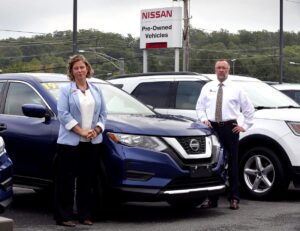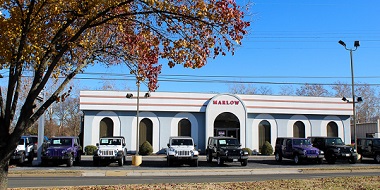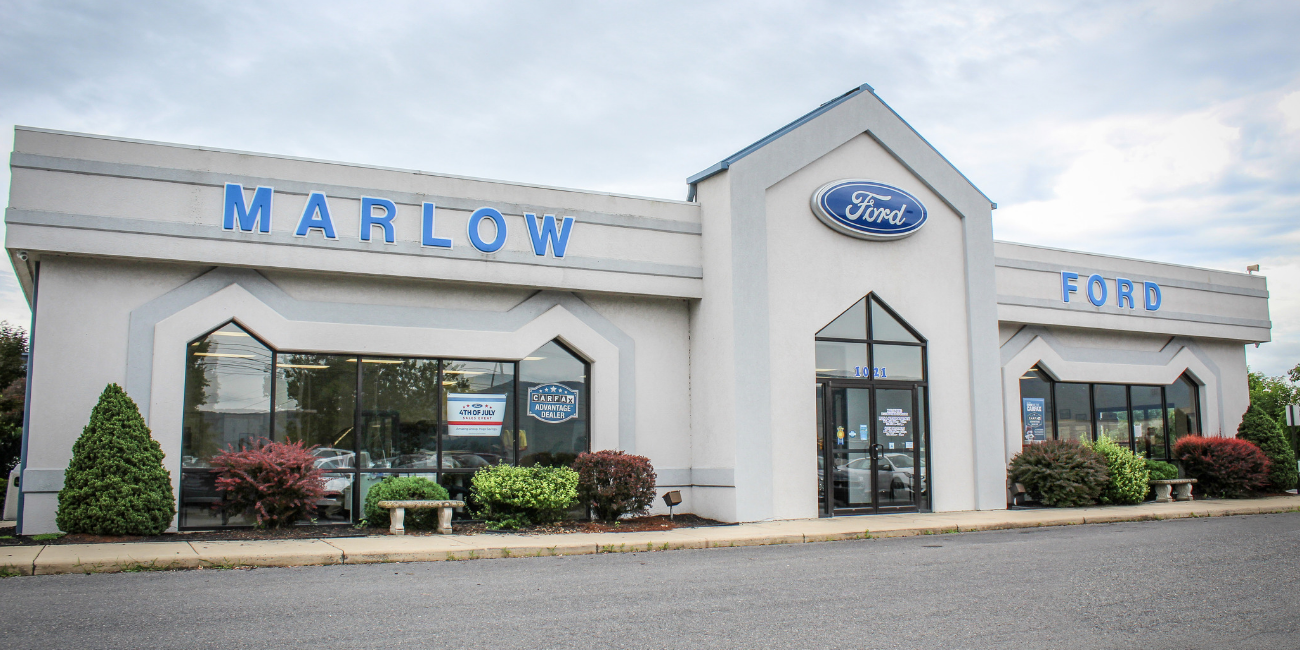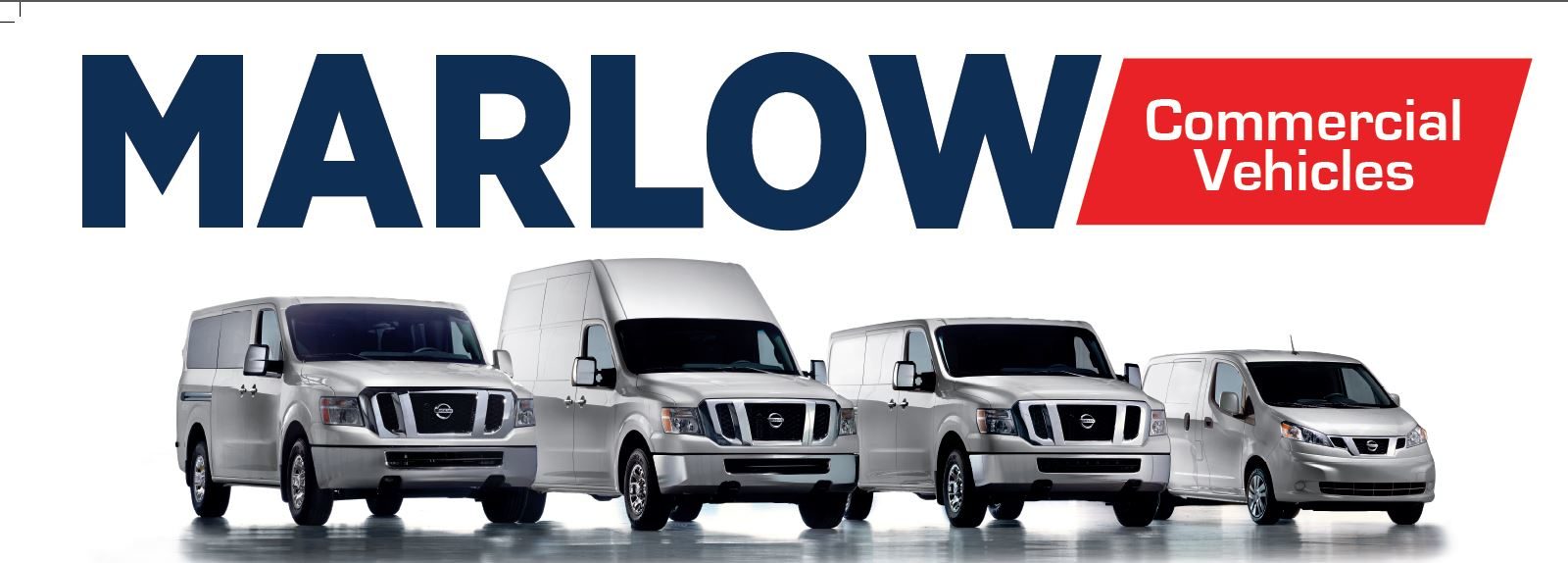Auto dealerships working through inventory woes
By MATT WELCH The Winchester Star Oct 9th, 2021
WINCHESTER — Near-empty car lots are not an uncommon sight these days in the Northern Shenandoah Valley.
Battling new and used inventory shortages as well as supply chain issues, car dealerships across the region have been learning almost on the fly at how to be innovative at solving what Marlow Auto Group President Emily Marlow Beck refers to as a “transportation problem.”
Car factories across North America, Europe and Asia have been closing at a high rate due to the COVID-19 pandemic, and many other technology companies responsible for semiconductor chips used in new vehicles have been having to shift away from production due to demand in other technology areas.
This has put a strain on new car sales across the country.
According to CarandDriver.com, new car sales for June were down about 14% compared to 2019, which was prior to the pandemic. It was the
 first month where the chip shortage impacted actual sales, the website said.
first month where the chip shortage impacted actual sales, the website said.
Around 17 million cars were sold in the U.S. in 2019, the fifth year in a row the auto industry sold that much, Car and Driver reported. Current
projections for 2021 sales remain at 16 million, with sales numbers dropping in the third quarter, and possibly also the fourth, due to the shortage.
Jeremy Seibert, general manager at Tri-State Nissan in Winchester, said that manufacturers estimate drops in production more and more every couple of weeks.
No one brand or dealership has been solely impacted throughout the shortage.
“We get questions about it all the time and people think it’s specific to our dealerships. I don’t think people realize until they take a step back and look at it from our vantage point that this is not a unique issue to any one store. This is a global issue,” Beck said. “It’s real, and it’s been a challenge to navigate. It’s difficult to predict. It’s an after-effect of COVID, for sure, that we didn’t anticipate.
”What could be hurting dealerships even more than a chip shortage is a kink in the supply chain, Beck and Seibert said.
“Supply chain issues aren’t just impacting new inventory but parts, too,” Seibert said. “It’s impacting body shops and service centers because they can’t get parts. It’s creating a much broader issue.”
Dealing with these issues, plus having dealt with COVID-19 for the last 19 months, has helped many dealerships refocus, though, Beck said.
“One of the things we’ve learned from COVID is that transportation is essential. We’ve had to be really innovative to solve our customers’ problems, help our customers out and meet their transportation needs,” she said. “In some instances it just means earning their trust and educating them on products they maybe wouldn’t have thought of, and, in some cases, it might mean introducing customers to a used vehicle or a certified preowned (CPO) vehicle.
”Just because new vehicles aren’t being loaded onto dealers’ lots doesn’t mean that folks aren’t out there looking for vehicles, Beck said.
She said a lot of customers are buying CPO vehicles. The manufacturer, Seibert explained, has a very specific checklist that a service department goes through to consider the vehicle “almost new.” It’s held to a “much higher standard” than a used vehicle that’s older. It typically comes with a longer warranty, too.
Seibert stressed that even though car lots may look empty, that doesn’t necessarily mean there aren’t cars to be sold.
“Even though it doesn’t look like we have much, we still have cars being shipped. The great thing for us is that since demand is so high, when we get a car from the manufacturer, it usually sells within a day or two. So, it looks like we don’t have anything, but we’re still selling quite a lot of new cars. They’re just selling before they get staged on the lot. It’s not the volume that we want, though.
”Beck said that COVID has changed many consumers’ lifestyles. For example, many people are driving more for vacations rather than flying. Or they may be driving into cities instead of taking public transportation.
Her advice to people looking for a new or new-to-them vehicle is this: “If you come onto our lot and don’t see what you want, don’t let your process stop there. If you reach out to us, we can maybe find it somewhere else or maybe there’s something in the pipeline that hasn’t made it here yet.”
Part of that is establishing and utilizing relationships with other dealers, Seibert said.
“The positive thing is that we have such strong relationships with other dealers. If a customer comes on the lot looking for something specific, we might not have it. But it doesn’t meant that we can’t get it. Times like this, you really learn how important those relationships are.”
But it comes down to communication, Beck said — letting the customers know that dealerships are there to help and are working on solving the problems consumers face, she said.
“We’re trying to use all of the resources available to us. The biggest thing is getting people to call us or email us or communicating what their needs are. We have to be very good listeners right now,” Beck said. “It’s not about selling a car, it’s about solving a transportation problem.”
— Contact Matt Welch at mwelch@winchesterstar.com



